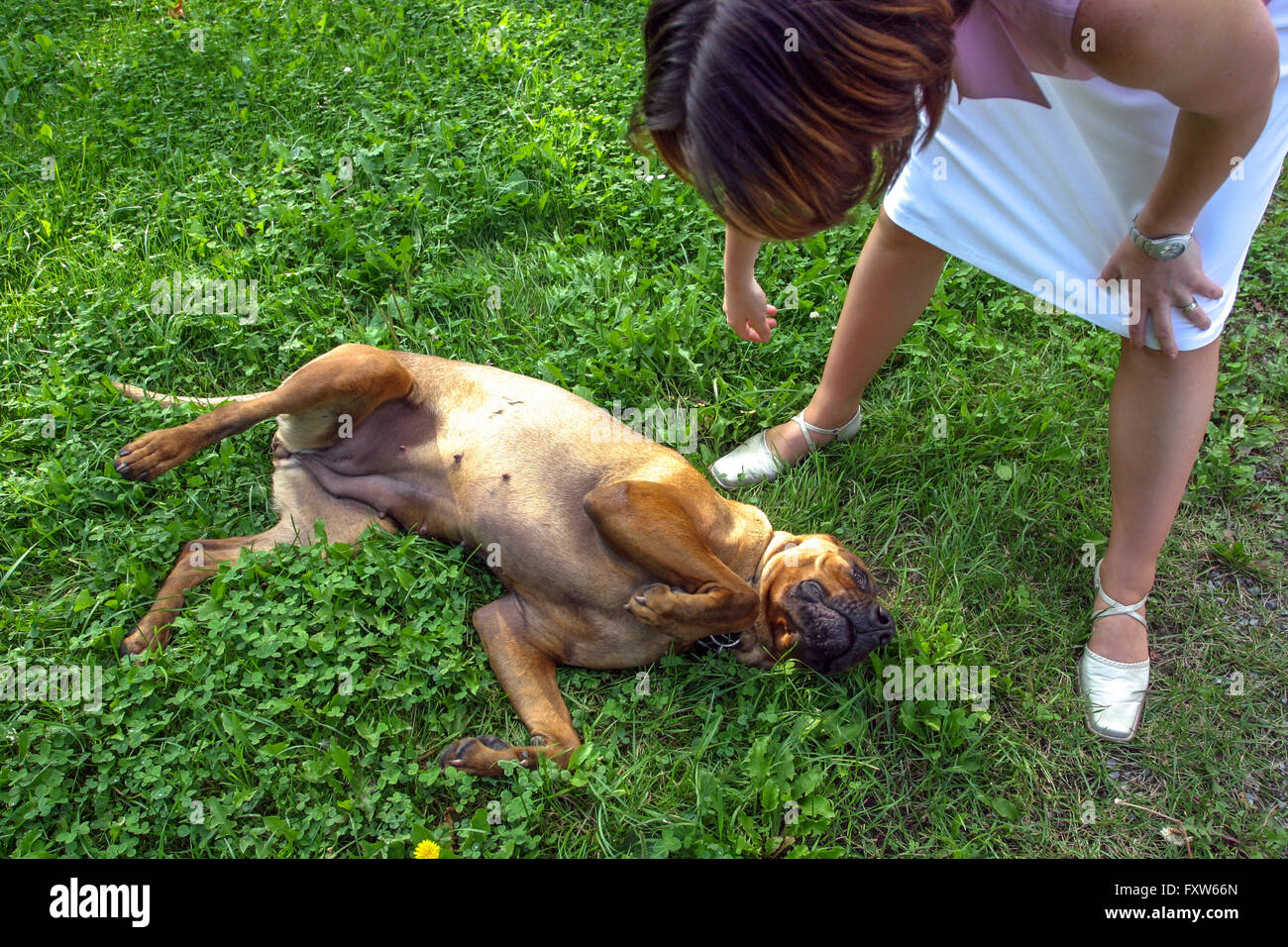
It is not always a good idea to keep an aggressive dog near children or small children. However, it might be necessary for your safety. Here are some tips to help you rehome an aggressive dog. One of the most important things to remember is that no one can watch over every animal around the house at all times. However, it's not uncommon for an aggressive dog to be friendly to one person in the house but turn aggressive when around a child. A dog with unpredictable temperaments around young children can lead to serious injury.
Finding a home without children
Even if there are no children, it can be difficult to find a home for an aggressive dog. It is important to keep children away from aggressive dogs. It's difficult to keep a dog safe from visitors and other animals. That's why it's important to find a loving home. However, with some help, you can find a perfect home without children for your aggressive dog.
Rehoming an aggressive dog can be the best and most painless option. Although it is natural to want to give a dog a second chance and find someone who will love him, it isn't ethical to rehome a dog that has a history of aggression without notifying the new family. You should find a place where children are not an issue. This will allow you to ignore the dog's aggression past whenever he comes into direct contact with children.
Dogs that are dominant or aggressive may not want to change their status within their family. However, professional dog trainers are not likely to be able change the dog's behavior. Rather than trying to change the behavior, it is best to find a home without children and other animals. If you have trouble finding a home for your dog, you might consider rehoming it.
You can't take your dog to every shelter when looking for a new home. Because of financial constraints, some shelters will not accept aggressive dogs and may euthanize them. Make sure that the shelter does not allow pets to be killed. You can find a shelter that will accept aggressive dogs if the dog is not friendly, but it's not guaranteed acceptance.
Refer to a trusted dog behaviorist
It is important to consult a dog behaviorist if you're looking to rehome an aggression dog. Such professionals are experts on dog behavior problems, and they can help you prevent future incidents by teaching your new dog to control its aggressive tendencies. A dog behaviorist who is reputable will help you determine the root cause of aggressive behaviour in your dog. Then, they will recommend the best management strategies.
Examining the history of a dog's bites is the first step in rehoming one. If you've noticed that the dog growls when handled or approached, consult with a reputable dog behaviorist before adopting him or her. The behavior consultant can help determine whether or not the dog is a suitable match for your household. A good behavior specialist can also help determine if rehoming dogs with a history in biting could help prevent future incidents.
You may feel inclined to consult a vet when you rehome an aggressive dog. However, a behaviorist will provide an objective assessment on your dog's behavior, past and temperament. He can also suggest medications that may help your dog. An American College of Veterinary Behaviorists member (ACVB) is another benefit of a reputable behavior consultant.
A certified dog behaviour consultant is an expert in helping dogs overcome fear and anxiety. They will teach you how to calm your dog, and how to make them feel at ease with you alone at home. If you don't have the time to hire a behaviorist, you can still work with a local animal shelter or rehoming service. Referrals can be made to the shelter or rescue.
Do not abandon a dog

It is a mistake to rehome an aggressive dog. When you rehome a dog, it can lead to increased fear and aggression in the new owner. Your loved one could also be at risk of serious injury or death by stressing the new owner. Dogs that are re-homed often end up in shelters or get dumped once more, which can cause anxiety for their new owners.
Although it may seem like the best option, rehoming an aggressive dog can prove dangerous for your child and other family members. Although it may be logical to give your pet another chance in a home that doesn't have children, it's not ethical. It's also not the best decision if you're concerned about your child’s safety. Even if the dog's new owner is not a parent, they should be aware of this problem.
There are other options. You could also consider selling your dog online. However this option is less likely to find you a good home. Online dog cruelty is common and it can be difficult to find a home for your dog. An aggressive dog can be difficult to adopt, so it is best to avoid this. Adopting a dog that is affectionate and friendly could be a great option for you if you are worried about their safety.
You should consider euthanizing the dog if he is dangerous or aggressive. If the dog is dangerous, shelters and breeders often require that the adopter return the dog to them. Aside from that, the original adopting entity may have extra information on the animal's history and personality. If the situation is serious, you should consider euthanizing the dog instead of re-homing it.
Last resort: Put your dog to sleep
Although it may seem the easiest and least painful way to rehome an aggressive dog, it's not. While it may be tempting to give the dog a second chance with a new family, euthanizing it isn't the right thing to do unless you can tell the new owners that the dog will likely bite them again. Instead, look for a new place to adopt the dog.
Although many rescues don't consider it a last resort, it is quite common. In certain cases, the aggressive dog may become too sick or infected to live. Euthanasia may be the only way to ensure the dog's safety. Rescuers should be emotionally ready for euthanasia. Britney Wallesch, of Black Dog Animal Rescue, Cheyenne, Wyoming did exactly that when she adopted Jessi. She searched for a nonprofit training center and sanctuary to place Jessi.
Another option is to rehome an aggressive dog. This is a drastic step, though. If you have unsuccessfully tried to rehome your dog, it may be too late. Often, a dog's bite history will mean that it won't find a new home if it's given to someone with a violent history. Before making any final decisions you should consult a professional dog behaviorist.
You should consult a vet before deciding whether to put your dog to bed. If the dog is aggressive and cannot be fixed, they will likely offer a better solution. Although euthanasia is an option when a dog exhibits aggressive behavior, it may not be the best choice. Be realistic about the situation and consider your resources before you make a final determination. Sometimes, euthanasia is the best option. However, you should consult a veterinarian or certified dog behavior consultant before making a final decision.
Rehoming aggressive dogs requires extreme care

Before you consider rehoming an aggressive pet, it is important to think about the possible consequences. Rehoming an aggressive pet is often the most humane decision. It's important to remember that aggressive dogs require more care, training, time, and resources than others. You may not be able to give the proper care to your dog to its new owner.
If you are considering rehoming an aggressive dog, you should make sure the new owner is fully aware of its history of aggression. You should also be aware of any history of aggressive behavior, such as biting. This can have serious legal implications. To determine if your dog is the right match for you, consult a behavior consultant.
A vet should be consulted if you are considering rehoming an aggressive dog. This could be due to stress, pain, or hormonal imbalances. It is vital to have your dog checked by a veterinarian. You should immediately get your dog checked if you suspect that they are suffering from any of these conditions. You can increase the chances of your dog attacking other dogs if it is aggressive.
Dog aggression is not curable, but it can be overcome with patience and dedication. Although it may seem difficult, the animal's wellbeing should always be your main priority. You should understand the possibility that your dog was neglected or abused when you adopt it from a shelter. You can reduce the likelihood of aggression by identifying triggers and training your dog not to react in a violent manner. You can show your dog how much you love them.
FAQ
What should you consider when getting a pet?
You must first consider what kind lifestyle you wish for yourself, your family, and your friends. Are you married? If so, how many? Are they currently over 50? Are there any special dietary requirements?
Do you have allergies? Is there anything you need to know more about your pet
These questions will help you decide if you want an active companion, a quiet pet dog, a cat that is house-trained, or a fish tank with tropical fish.
Adopting a puppy is a great idea. Make sure to visit a rescue or shelter group so you can get to know the animals and feel at ease with them.
You'll also want to know if the animal has been vaccinated against rabies and other diseases.
Next, check with the owner to see if he/she will take care your animal while you're on vacation. This way, you won't have to worry about leaving your pet at home alone.
Remember that pets are part your family. If you don't like them, you shouldn’t adopt them.
What age is appropriate for a child to have a pet?
Children younger than five years should not have pets. Young children should not have cats or dogs.
Most children who have pets are bitten by them. This is especially true when the dog is small.
Pit bulls and other breeds of dog can be very aggressive towards animals.
Even though dogs may appear friendly, this doesn't mean they won't attack other animals.
If you decide to get a dog, make sure it is properly trained. Ensure that your child is always supervised when playing with the dog.
Do I choose a puppy or kitten?
This depends on you. Some people love kittens, while others prefer puppies.
But, in general, puppies tend to be more active and playful. Kittens often sleep a lot and can be very gentle.
Both types require a lot from their owners. They will need lots of attention as they grow up and require a lot more care.
You will need to take them to the vet for regular checkups. Also, they will require regular medical checkups so you'll have to spend time taking them to see the vet.
What are the responsibilities and responsibilities of pet owners?
An owner of a pet must love their pet unconditionally. They must ensure that their pet has all the basic needs met, including shelter, water, and food.
They should teach them good behavior. The pet owner must not neglect or abuse it.
He should also be responsible enough to take care of it and clean up after it.
Statistics
- Monthly costs are for a one-year-old female mixed-breed dog and an under one-year-old male domestic shorthair cat, respectively, in excellent health residing in Texas, with a $500 annual deductible, $5,000 annual benefit limit, and 90% reimbursement rate. (usnews.com)
- Here's a sobering reality: when you add up vaccinations, health exams, heartworm medications, litter, collars and leashes, food, and grooming, you can expect a bill of at least $1,000 a year, according to SSPCA. (bustle.com)
- Pet insurance helps pay for your pet's medical care, with many policies covering up to 90 percent of your vet bills. (money.com)
- Reimbursement rates vary by insurer, but common rates range from 60% to 100% of your veterinary bill. (usnews.com)
- In fact, according to ASPCA, first-year expenses can sum up to nearly $2,000. (petplay.com)
External Links
How To
How to teach your cat to use the litterbox
They are great for reducing waste from your pet, but not all cats like them. They can be too small for cats, or simply wrong for them. This could lead to them smearing litter on the floor and leaving it there.
Here are some tips to help you ensure your cat uses the litterbox with the greatest success.
-
You should ensure that your cat can stand straight up in the box without having to bend down.
-
You should place it so your cat can go outside.
-
Give your cat water as often as possible while he goes through his usual routine of toilet breaks. It will also help to keep him hydrated and less stressed about the box.
-
You should avoid sudden movements and noises, especially if your cat is already used to being outside.
-
Once he's comfortable with the idea of the box, praise him for correctly using it. You may even consider giving him treats, but only after he has completed his business.
-
Your cat shouldn't be forced to use the box.
-
Be patient! It might take several weeks before your cat uses the box every day. Be patient.
-
You should contact your veterinarian immediately if you observe any changes in your cat’s behavior such as aggression towards other people or animals. This could be an indication of serious problems such as a urinary tract infection, kidney disease, or other health issues.
-
Keep your cat clean and tidy, especially around the litter box.